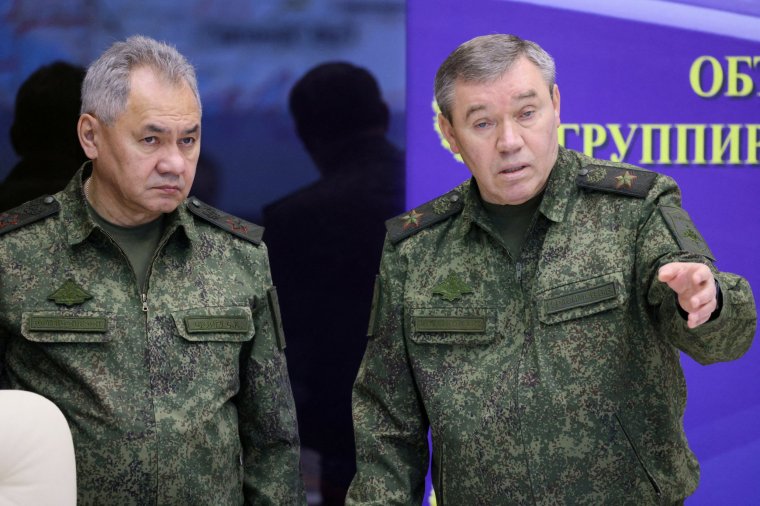Vladimir Putin’s reappointment of “non-entity” General Valery Gerasimov shows that the Russian president is “extremely reluctant to replace anyone”, experts have said.
General Gerasimov, who is Russia’s highest-ranked soldier, was shown on Monday in a defence ministry video in what would be his first public appearance since the failed Wagner Group mutiny on 24 June.
The video appeared to show the general, sitting in a white leather seat in a military command room, ordering subordinates to destroy Ukrainian missile sites on Sunday. The defence ministry used his current title, chief of the general staff of Russia’s armed forces and commander of the joint group of forces in Ukraine.
The footage suggests Mr Putin has kept his two most powerful military leaders – General Gerasimov and defence minister Sergei Shoigu – in their posts despite demands from Wagner mercenary leader Yevgeny Prigozhin to sack them over alleged incompetence in running military operations in Ukraine.
The general’s reappearance suggests Russia’s leader is “extremely reluctant to replace anyone”, said Konstantin Sonin, political economist and professor at the University of Chicago.

He told i: “Since the beginning of the war, every time we heard about a Russian general who disappeared, who was dismissed, who was relieved of command, they would then reappear, and still in a commanding position. Putin has a deck of cards and he likes to shuffle them every so often without replacing anyone.
“Putin is extremely reluctant to appoint anyone who has sole responsibility for their post. If you look through a list of his prime ministers, for example, they are all non-entities who never have any power of their own. The same thing goes for his generals. It’s not even an inability of delegation; it’s a total inability on Putin’s part to appoint someone who would reasonably be considered an independent person.
“He is unable to replace Gerasimov because he fears replacing him with any general who might be respected by the military community. Putin’s dilemma is either to keep hold of Gerasimov or find someone who would be equally a non-entity.”
The general’s stock in Moscow has plummeted in recent months, leading to his disappearance from public view in the wake of the disastrous first phase of Russia’s invasion of Ukraine, which climaxed in a humiliating retreat from Kyiv in April 2022. He was then reinstalled as the leader of Russia’s invasion force in January but oversaw further failures.
General Gerasimov’s predecessor, General Sergei Surovikin, has not been seen since Mr Prigozhin agreed with the Kremlin to end his rebellion in exchange for dropping mutiny charges against him. Reports suggest that General Surovikin knew about Wagner’s planned coup and may have been arrested or held for questioning.
Giorgi Revishvili, Russia analyst and former senior advisor at the Office of the National Security Council of Georgia, said that the Russian President may have moved to dispel rumours that there are any cracks in the ministry of defence.
“Putin’s image as a strong, invincible leader has been badly damaged,” he told i. “In the late 90s, when he came into power, his image was all about bringing order to the country and ruling with an iron fist. Suddenly, his former associate has started a rebellion.
“I would assume that in the short to medium term there won’t be any rearrangements in the Russian defence ministry, at least for Gerasimov and Shoigu, as it will show up Putin’s weaknesses.
“Prigozhin specifically stated that his main objective was to march against these two people, so by dismissing them, it will certainly embolden, or increase popular support for, Prigozhin.”


